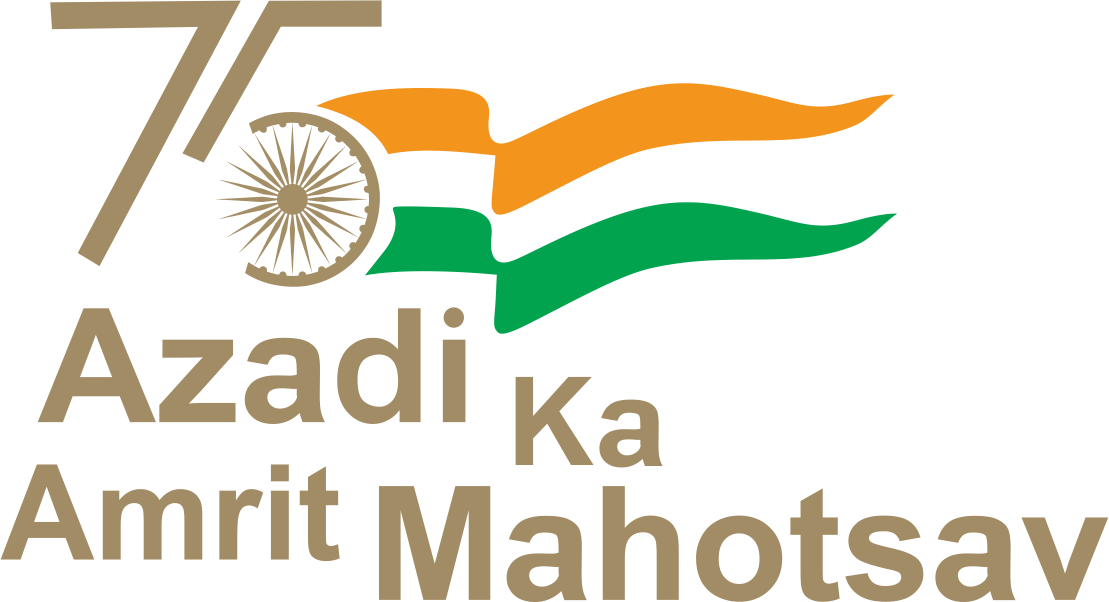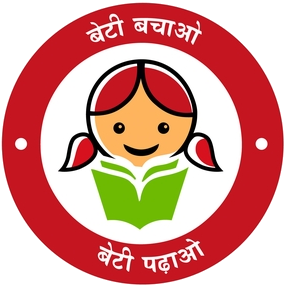MIDH
Annual Action Plan for 2015-16 for consideration of Mission for Integrated Development of Horticulture (MIDH)
As per the tentative allocation of Rs 5.00 crore to Spices Board under MIDH during 2015- 16, the Annual Action Plan for 2015-16 for post harvest improvement of spices to be implemented by Spices Board as a National Level Agency is submitted below:
Horticulture Mechanization
- Aluminium ladders for harvesting pepper,- clove and nutmeg [for reaping]
Spices viz. Pepper, clove and nutmeg grow to a height up to 30 feet and traditionally, harvesting has been done manually by using single bamboo pole. This is risky and laborious. At present, there is acute labour shortage in these spice growing areas for harvesting and also there is severe shortage in the availability of bamboo poles . Besides the bamboo poles are easily perishable. In view of the above, Board proposes to distribute Aluminium ladders to pepper, clove and nutmeg farmers for facilitating the harvesting. These ladders are more durable- wheri compared to bamboo poles and can be easily carried, and positioned according to the topography, besides helping in reducing the time and risk.
Board proposes to supply alumin ium ladders of 20 feet height and above to pepper, clove and nutmeg farmers. An Aluminium ladder costs about Rs 9 ,000/-. It is proposed to provide 40% cost of the ladder subject to a maximum of Rs. 3600/- as subsidy to general category farmers and 50 % cost of the ladder subject to a maximum of Rs.4500/ per ladder as subsidy in the case of SC,ST, Small & marginal farmers, women farmers, beneficiaries in NE states. The farmers are eligible to purchase a maximum 2 ladders under the scheme and the eligible subsidy will be limited to Rs.7200/- per grower in the case of general category farmers and Rs.9000/- in the case of SC/ST/Small & marginal, Women farmers and beneficiaries in NE states. It is proposed to distribute 2200 ladders during 2015-16. The financial assistance for supplying 2200 ladders will be Rs. 99 lakhs.
- Pepper Threshers
Pepper berries are generally separated from spikes manually by unhygienic way of trampling with feet. This leads to quality problem of bacterial contamination . Moreover, it is a laborious process. Now power operated mechanical threshers are available for separating the berries from spikes . The threshers are hygienic as well as helps in reducing the time and labour. Hence, it is proposed to supply power operated pepper threshers to the individual farmers I farmers groups I SHGs/Women Groups I NGOs etc .
A pepper thresher with a capacity to thresh 300 kg per hour costs Rs 30,0001- approximately . It is proposed to provide 40% cost of the equipment subject to a maximum of Rs. 120001- as subsidy to general category farmers and 50 % cost of the equipment subject to a maximum of Rs.150001- per thresher as subsidy in the case of SC ,ST, Small & marginal farmers , women farmers and beneficiaries in NE states and farmers groups I SHGsl NGOs etc . It is proposed to install 500 threshers during 2015-16 season. The financial assistance for supplying 500 threshers will be Rs. 75 lakhs.
Primary Processing
- Driers for drying cardamom small, Cardamo_m large,. pepper and clove
Cardamom [small] is generally dried using traditional curing house and cardamom [large] using traditional bhatti. In the traditional methods, cardamom takes longer time for drying. Nowadays dryers are available for drying cardamom which reduces the d_rying time considerably besides improving the quality of the product by retaining natural flavor and colour. The cardamom dried in Dryer system fetches better price in the market.
Black pepper is hygroscopic in nature and absorption of moisture from air, notable during rainy season with high humidity may result in mould and infestations . Before storage it is to be dried to less than 10% moisture. Therefore, pepper berries need to be dried properly without impairing colour, oil, piperine and pungency. Traditional method adopted by farmers is open sun drying which is not hygienic, since it can lead to contamination of the final produce with bird castings, salmonella, filth and othe r extraneous matter and als results in volatilisation of essential oil. These mechanical driers will reduce the drying time , ie, the drying time will be 10-11 hours instead of 3-4 days . Continuous drying can be ensured irrespective of weather .
Clove is generally sun dried . Drying under controlled conditions improves the quality of the clove besides reducing the drying time.
In order to ensure the quality of the final produce, Board proposes to supply driers of cardamom small, Cardamom large, pepper and clove to farmers I farmers groupsiSHGs/Women GroupsiNGOs etc at subsidized rate.
The cost of a dryer having 250-300 kg capacity is about Rs 2 .50 lakh. Since the cardamom small, cardamom large, pepper and clove is mainly grown in hilly area, it is proposed to provide 55 % cost of the equipment subject to a maximum of Rs. 1.375 lakhs as subsidy to the growers .
It is proposed to install 60 driers during 2015-16 at a financial assistance of Rs. 82.50 lakhs.
- Turmeric Polisher
Dried turmeric has a poor appearance and rough dull colour outside the surface with scales and root bits. The appearance is improved by smoothening and polishing the outer surface by manual or mechanical rubbing. Manual polishing is done by rubbing the dried turmeric fingers on a hard surface or trampling them under feet by wrapping in gunny bags. Manual polishing is an unhygienic practice, which affects quality of the product. The improved method of polishing turmeric is by using hand operated I power operated polishers . This ensures hygienic and effective polishing which gives better appearance to the product.
Hence it is proposed to popularize the practice of using improved polishers for polishing turmeric among the turmeric farmers. The average cost of a turmeric polishing machine ranges from Rs.1.50 lakhs to Rs.2.50 lakh for a capacity of one ton to two ton per hour. It is proposed to provide 40% of the cost of the equipment subject to a maximum of Rs. 1.00 lakh as subsidy. It is proposed to distribute about 65 polishers to the farmers I Farmers' group I NGOsl SHGsl Women Groups etc. during 2015-16 season . The financial assistance for supplying 65 turmeric polishers will be Rs. 65 lakhs.
Innovative Intervention
- Supply of Polythene sheets for drying chilli, pepper. seed spices and turmeric
Freshly harvested spices viz. Chilli, pepper, seed spices and turmeric contain about 80% moisture and its shelf life is estimated to be two to three days, it is essential to dry the produce to about 10 % moisture level to prevent the development of microorganisms and subsequent loss of quality or total spoilage. Generally chillies, pepper, seed spices and turmeric are sun dried on earthen surfaces resulting in contamination of the produce. These spices have to be dried under hygienic conditions to improve the quality. Keeping this in view, it is proposed to supply 250 GSM HOPE sheets to chilli, pepper seed spices and turmeric farmers to dry the produce under hygienic condition.
The unit cost of HOPE sheet (250 GSM) of size 8 m x 6 m is approx. Rs. 3500/- and it is proposed to provide financial assistance for farmers @ Rs. 1750/- per sheet towards 50% subsidy. It is proposed to distribute 2857 HOPE sheets during 2015-16 season at a total cost of Rs.50.00 lakhs.
HUMAN RESOURCE DEVELOPMENT PROGRAMME
- Training programmes to farmers on Spices Production & quality improvement Farmers are in need of diverse range of information to support their farm activities viz. crop production and post harvest technologies viz. drying, processing, grading, storage and marketing. Hence it is proposed to conduct training programmes to farmers focussing mainly on the good agriculture practices and post harvest practices in spices to increase the production and improve the quality of spices domestic and international market. The cost of a training is Rs. 1000/- per farmer including transport per day. The duration of the training will be one day. It is proposed to train 4000 spices farmers during 2015-16 at a total outlay of Rs. 40.00 lakhs.
- Training programmes to technical officials of State Agri I Horti. Dept [TOT]
The extension officers of the State Agriculture I Horticulture Dept are need to be trained to update their knowledge, skill and attitude on Good Agriculture and Post harvest practices in spices so that they, in turn, can train the farmers in their areas of working. The cost of a training is Rs. 300/- per official per day plus TNDA as admissible. The duration of the training will be one day. It is proposed to train 500 nos of technical officials of State Agri./Horticulture Dept during 2015-16 at a total outlay of Rs. 1.50 lakhs.
Mission Management
- Seminars I Conferences
It is proposed to conduct series of workshop I conference I seminars in the project implementing states by arranging interactive discussions with the subject specialist/ scientists/extension officers I /line Dept officials I NGOs I SHGs I Farmers Groups and progressive farmers. The duration of the seminar I conference I workshop is 2 days . The approved budget for a district level programme is Rs. 2 lakh and for state level programme is Rs.3 lakh The expected number of participants per seminar is 100 nos for District level seminar and 150 Nos for State level seminar. It is proposed to conduct 14 district level seminars and 5 state level seminars during 2015-16 at a total financial assistance of Rs.43.00 lakhs.
- Workshop on Food Safety & Supply Chain Management in Spices & Botanical Ingredients
Food Safety and Supply Chain Management are matters of global concern and spices, being a significant part of food, has to face these challenges frequently in the global market. This necessitates the Indian Spice Industry to establish a strong link throughout the supply chain to see that good practices are followed in line with the International Standards of food safety. This can give us an edge over the other competitors on the export front. In order to address these challenges, Spices Board in association with Joint Institute for Food Safety and Applied Nutrition (JIFSAN) and Confederation of Indian Industry (Gil FACE) has established a Collaborative Training Centre (CTC) for Food Safety and Supply Chain Management in Spices and Botanical ingredients , for capacity building through training programmes. The master trainers were selected from the first phase of the training programme held in Cochin during second week of September 2012 and they were sent for 2nd phase of the programme at JIFSAN Centre at Maryland and National Centre for Natural Products Research (NCNPR) Mississippi USA, for training. Under the phase-Ill of the programme , these master trainers will train personnel in the various segments of the spices industry. After the 'train the trainers' programme , it is expected that they in turn will conduct field level training programmes with a view to build capacity on food safety and supply chain management aspects.
Collaboration of State Governments in this endeavour is very important as the production and extension of spices are dealt by the concerned state governments. CTC had series of meetings with the National/State Horticulture Mission officials of important spices producing states to sensitize them to the food safety issues in spices . Three meetings were organised with the State Government Officials at South , Central & Northern parts of India. The responses from all the three meetings were quite encouraging and CTC cell had full assurance and co-operation from the State Agricultural & Horticultural Departments in not only organising the Phase-Ill training programmes in major spice growing states of the country, but also to continue work on food safety through GAP cells.
In view of the above , it is proposed to conduct 3 State level workshops in different States during 2015-16. The duration of the workshop will be 2 days. The Senior officers of Agriculture/ Horticulture Dept, Scientists of ICAR/ SAUs , NGOs, Farmers' co-operatives , progressive farmers , Spice Manufacturers/ processors will be trained as Master Trainers in the workshop , who , in turn will train the farming community. The number of participants will be 100 per programme .
Joint efforts are needed to face and mitigate the challenge of food safety and quality issues posed to Indian Spice Industry and will go a long way to retain/strengthen the prime position of Indian Spices in the World Market.
The Cost for conducting a State level Workshop programme will be Rs. 3.00 lakhs including the training material cost. It is proposed to conduct 3 such workshops during 2015-16 at a financial assistance of Rs. 9.00 lakhs.
- National Seminar on Spice crops
Spices are grown in almost all the states and UTs in India. There is felt need to have convergence of scientists in various spices research stations of Central I State Institutes, Senior officials of State Agriculture & Horticulture Dept, Processors & exporters of spices I NGOs I NABARD I Farmers Associations, progressive farmers , etc. to discuss the current issues in pre-harvest and post harvest aspects of spice crops and to identify the potential areas in spices cultivation, to identify the gaps in spices cultivation & processing and to suggest measures to increase the production, improve the quality and promote the exports of spices . The programme will have 2 days duration. The approved budget for National level seminar is Rs. 5 lakh per event. It is proposed to conduct 2 National level seminars during 2015-16 at a total financial assistance of Rs.10 lakhs.
- Implementation cost
It is proposed to allocate 5 % of the total annual expenditure ie Rs.25 lakhs as implementation cost in connection with the implementation of the project by Spices Board during 2015-16.
PHYSICAL TARGETS AND FINANCIAL OUTLAY PROPOSED FOR IMPLEMENTATION OF THE MIDH PROJECT DURING 2015-16 FOR POST HARVEST PROGRAMMES BY SPICES BOARD AS NLA
| ||||||||||||||||||||||||||||||||||||||||||||||||||||||||||||||||||||||||||||||||||||||||||||||||||||||||||||||||||||||||||||||||||||||||||||||||||||||||||||||||||||||||||||||||||||||||||||||||||||||||







